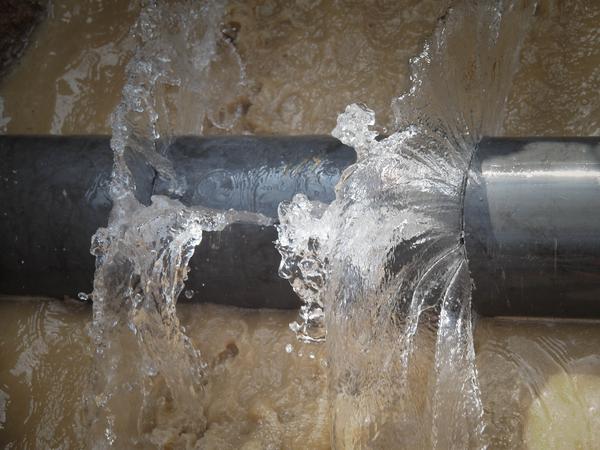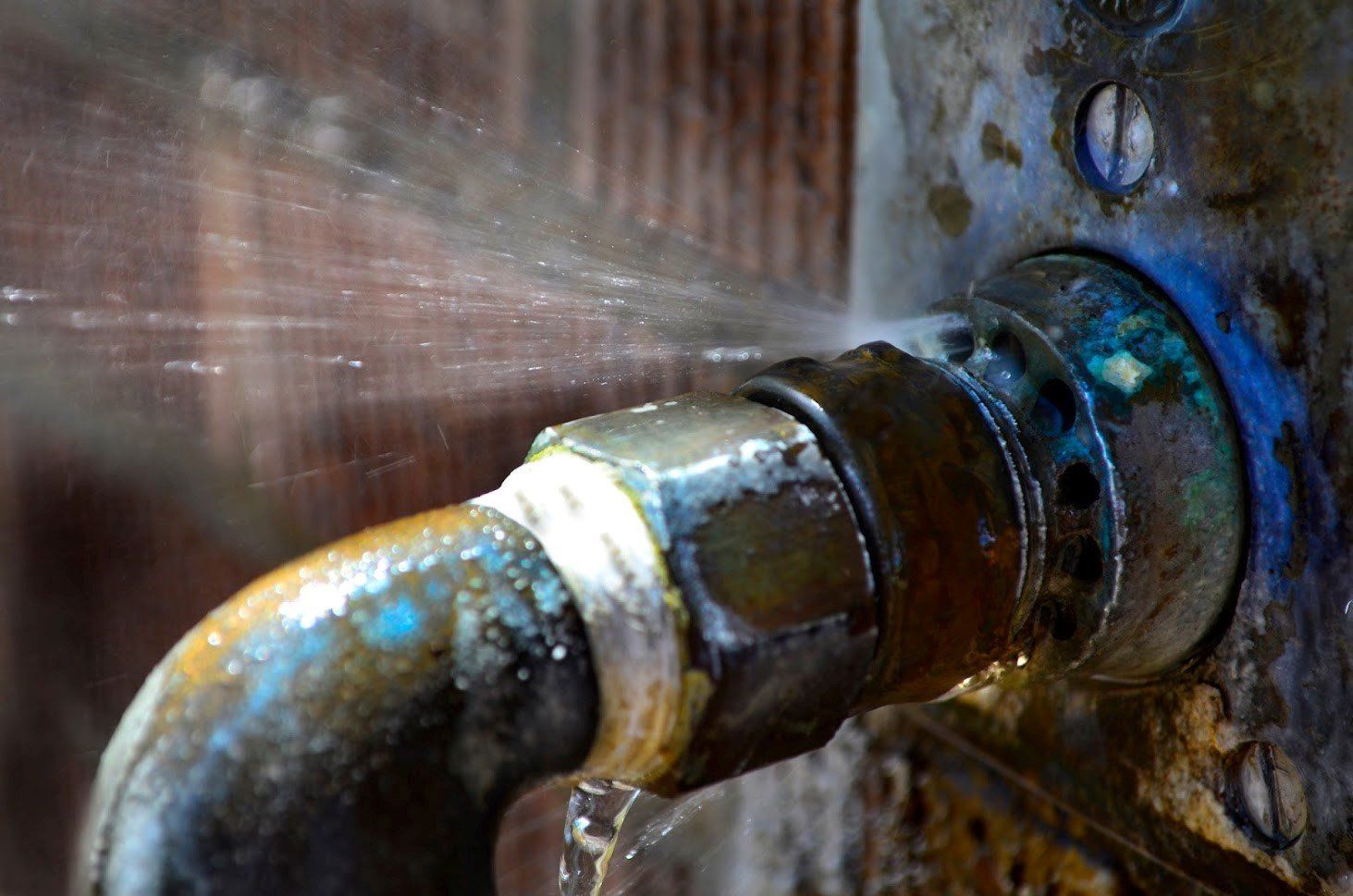What Homeowners Need to Know About Septic Tank Maintenance
What Homeowners Need to Know About Septic Tank Maintenance
Blog Article
Everybody will have their own unique conception with regards to Do’s And Don’ts For Homeowners Managing With Water Damage.

What should you do if a water pipe ruptureds in your residence? The longer you wait, the much more serious the damages that can happen to your residential property. For these reasons, you need to find out how to act in the event of a ruptured water pipeline.
Shut Off the Key Waterline Shutoff
The first thing to do? Close the shut-off shutoff. Seek the local shut-off shutoff to switch off the water in one specific area just. If you do not know where the localized shut-off shutoff is, go with the main water line valve as well as transform it off. This action will cut off the water promptly in your entire residence. Usually, the main shutoff is discovered outside the residence beside the water meter. If it's not there, you can additionally discover it in 2 locations: in the cellar at eye level or the first floor on the ground. Commonly, contractors placed the shut-off valve generally ground degree restroom or appropriate next to it.
Call Water Damages Reconstruction Pros for Help
After closing the water resource, call the experts for assistance. This situation is not something you can do some DIY due to the fact that the pipes needed to be dealt with and also there is a demand to deal with the various other damages to your residential property. Look for help from a trusted firm offering 24/7 emergency services if you can not cope. With their specialist aid, you can prevent much bigger water damages consisting of warped baseboards, loosened floor tiles, or harmed frameworks. Don't take this issue lightly and also look for professional assistance for your complete comfort as well as a qualified solution.
Document the Damage For Insurance coverage
While you're waiting on the pros to show up, obtain some documents of the damages brought on by the wayward pipeline. Take images and also video clips of every little thing. Do close-up shots of the harmed places and prized possessions. Your documentation will certainly act as proof for your house owner's insurance coverage. Keeping proactive with this situation aids you to sue for protection, which will further support you as well as your family members to come back on your feet.
Salvage Things That Can Be Conserved
Check out the harmed products and take out the most important ones from the pile as soon as you're done taking photos. Dry them off in a dry/warm place away from the broken location and try to maintain them as long as you can. Drag as much wetness as you can to the material so it can start to dry.
Start the Drying Refine
The good news is, the water from your waterlines is already tidy so you don't have to worry regarding sewage system water. The moving water may have disturbed the dust as well as particles in your carpetings and floorboards. Blot out as much water as you can from the surface areas with old towels.
Specialists are the only individuals qualified to evaluate properly as well as deal with the burs pipelines and subsequent damage. They normally offer quiet red flags like bubbling paint, water stains.
What should you do if a water pipe bursts in your home? For these factors, you require to find out how to act in the event of a burst water pipe. After shutting the water source, call the experts for aid. With their specialist aid, you can prevent much larger water damage including distorted baseboards, loose ceramic tiles, or harmed frameworks. Fortunately, the water from your waterlines is already tidy so you do not have to fret regarding sewer water.
How to Handle a Burst Pipe and Minimize Damage
Steps to Take Ahead of Time
If you own property in an area that experiences cold weather, you need to be aware of seasonal maintenance tasks that will help you protect your property as the weather changes each year. One of the most important steps is to winterize your pipes to ensure they won't freeze or burst when the temperature drops. This includes action items like insulating any exposed pipes, detaching garden hoses and covering outdoor faucets. If the weather gets cold enough, you may even consider leaving a faucet dripping or opening cabinet doors during the coldest parts of the day.
No matter how prepared you might be, accidents and emergencies still happen. You'd be wise to set up a savings account specifically for your property so you have a "rainy day" fund set aside for unexpected expenses. All homes—regardless of age, location or condition—will inevitably need some form of emergency repair.
Steps to Take for Frozen Pipes
A frozen pipe will not necessarily burst, so if you can catch a frozen pipe early on, you could save yourself a major headache. When your area experiences frigid temperatures, be sure to check your plumbing and keep an eye out for warning signs like faucets only releasing small amounts of water or toilets not refilling when flushed. If you do run into one of these issues, you're likely dealing with a frozen pipe.
If this happens, your first step should be to cut off the water supply to that section of the plumbing. Expanding and freezing water can quickly cause damage. Even if the water supply is shut off, you will likely still deal with some leaking from the water that defrosts after the pipe has thawed. Be prepared with a mop, bucket and/or towels to quickly soak up any excess water.
In order to thaw a frozen pipe, you can use a space heater, infrared or incandescent heat lamp, or even a hairdryer to warm up the frozen area. Heat tape is also an option and should be used according to manufacturer instructions. Do not use any sort of open flame to thaw frozen pipes, as it poses a major fire hazard and can damage your pipes further.
Steps to Take for a Burst Pipe
Water damage claims are the second most common insurance claim in the U.S. When you're dealing with a frozen pipe, the water continues to expand as it freezes, which creates pressure that can cause a pipe to burst. When this happens, the crack or leak in the pipe allows water flow from the pipe to enter your home where it shouldn't. If a pipe does burst, you need to act quickly to mitigate property damage and repair cost.
Your very first step should be to shut off your main water supply to minimize flooding—typically the most expensive damage to address. Once you've shut off the water supply, make sure you identify the entire area that has been impacted by the leak. Remove as much water as possible—as quickly as possible—using a mop, sponges, towels or a shop vacuum or wet/dry vacuum. To prevent long-term damage due to moisture build-up, run a dehumidifier or fan in the affected area. Contact a licensed plumber to ensure the pipe is correctly repaired before running any water to that section of the home again. Burst pipes and the associated water damage are something you absolutely want to avoid as a property owner. If you've had to learn your lesson the hard way, don't let yourself get caught in a similar situation during the next spell of cold weather. The best way to deal with frozen or burst pipes is to prevent them in the first place—proactive winter maintenance will save you time, money and a whole lot of stress.

Do you like reading up on Quick Tips To Help Deal With Water Damage? Create feedback down below. We would be delighted to see your suggestions about this content. We are looking forward that you visit us again soon. Enjoyed reading our posting? Please share it. Let others locate it. Many thanks for your time. Come back soon.
Report this page